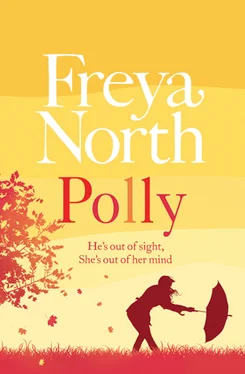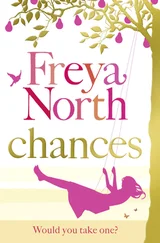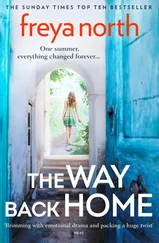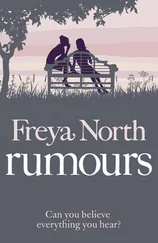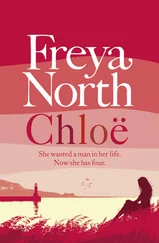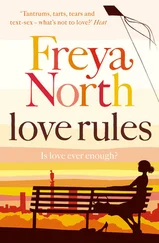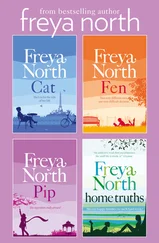‘How on earth can there be a wrong side to Hampstead?’ Max, then in Streatham, had marvelled, already heaping his belongings into black bin bags.
So the boys kept home together and never wavered from the four golden rules they had devised during that journey seven years ago from south to north London. Sitting-room to appear to be tidy, cleaning duties on alternate Saturdays, fridge always to contain milk and alcohol, and CD collection to be communal. The draughtsman and photographer, both freelance and with adjacent studios nearby, living and working alongside each other in peace and harmony. They never fight for the shower or the phone, they never argue about washing up, they invariably have the same taste in TV and radio programming. And their combined CD collection is not so much communal as duplicate.
Dominic Fyfield is five years older, two inches taller and a stone heavier than his brother. Like Max, Dominic is handsome in face and character. Where his features are not as fine as Max’s (his hair is a touch coarser and his eyes a little plainer), Dominic’s disposition is more effortlessly outgoing. Both brothers have winning smiles but Dominic shamelessly employs his to wholly libidinous ends. Dominic, however, respects Max’s monogamy just as much as Max marvels at his brother’s stamina and ability to chop and change, mix and match, when it comes to women. Max does, however, frequently call his brother a tart. Dominic, though, accepts it only as a profound compliment.
‘Why thank you, good man. Praise indeed from one as staid and unadventurous as you, Maximilian.’
‘Ah! But at least I know where my next metaphorical hot meal is coming from. Ever thought you might go hungry?’
‘ Moi ? Pah!’
The Fyfield brothers are a lovely balance because they are different enough not to be competitive. Neither brother covets the other’s life because they are content and settled and secure with their own patterns. Neither, therefore, passes judgement. They disagree frequently but they rarely argue. And though Dominic lavishes many a smile on Polly, it is with no intent other than his seal of approval, acknowledgement of his brother’s good fortune.
On first meeting her, Dominic had put her to the test and discovered she came through with colours blazing. He regaled Max with his findings.
‘Bit small?’ Dominic suggested.
‘But perfectly formed,’ Max justified.
‘Mmm,’ conceded Dominic, ‘nicely put together. Bright too.’
‘As a button,’ confirmed Max.
‘Gregarious and outgoing,’ said Dominic, throwing a cushion at his brother. ‘Good balance for you, you fusty old fart.’
‘I don’t think you can talk about farts being fusty, Dom,’ warned Max with a retaliation of cushions, ‘it’s the pot calling the kettle black.’
‘Bastard! Flatulence is a serious medical matter. OK, OK. So this Polly Fenton is a teacher.’
‘Yup, English.’
‘Shame it’s not PE but never mind. Remember that PE teacher I went out with?’
‘Unforgettable,’ cringed Max.
‘Gave a whole new meaning to the term “games mistress”, I can tell you.’
‘I can hear her still,’ Max groaned.
Dominic had a private reminisce, of which Max decided not to partake, before returning his attention to his brother’s new girlfriend.
‘Fenton. Do you know, she actually apologized to me for not being related to Roger. Now that’s what I call impressive.’
‘Who?’
‘Maximus Cretinous! Roh- ger Fen -ton,’ Dominic stressed as though spoken italics would assist, ‘seminal nineteenth-century photographer? Crimean War?’
‘Right, right,’ hurried Max. ‘She’s not related to James either.’
‘Who he?’
‘ Jay -ums Fen -ton, dickhead,’ Max relished. ‘Come on – landmark British poet, journalist, critic? The Memory of War ?’
Dominic regarded his brother slyly. ‘Swot!’ he declared, with a friendly punch to the biceps.
‘Back to Polly?’ Max, ever the pacifist, suggested; so they chinked glasses and toasted her health and Max’s very good fortune.
‘Get you, Max!’ mused Dominic. ‘Is she tickling your fancy or melting your heart?’
‘We’re not talking marriage here,’ Max had laughed, standing and stretching, and offering his brother a choice between a frozen lasagne ready-meal or beans on toast.
‘She’ll be half-way through her journey now,’ Dominic remarks, listening to his watch, checking it against the time on the video and phoning the talking clock to make absolutely sure.
‘Oh, and I asked her to marry me,’ Max says to Dominic, as if informing him merely that he had invited Polly along to the cinema with them.
‘Oh yes?’ says Dominic, keeping a straight face but unable to do anything about the sparkle in his eyes.
‘Yup,’ says Max, ‘just before she went through passport control.’
‘Did she, er, accept graciously?’ asked Dominic, all wide eyed and winsome.
‘Not in so many words,’ said Max slowly, ‘what with all her sobbing and hugging me. And her nose all blocked up.’ He proffered the crumpled section of his shirt as proof.
‘Ah,’ said Dominic, further convinced that all women were soft. And so, it now transpired, was his brother. ‘Bet she made off with your diamond!’
‘Actually,’ said Max, burping lightly under his breath and passing his glass for another refill, ‘it was all a bit spur-of-the-moment. The words sort of tumbled out. Anyway, she’s having to make do with the plastic jigger from a small bottle of fruit juice. Until she comes home.’
With eyes shut and further concealed by the eye-mask; body wrapped, chin to knee, against the controlled chill of aeroplane air-conditioning by a thin, synthetic blanket, Polly concentrates on forgetting the whirr and smell of the plane, the words and pictures of the Hubbardtons brochure, to transport herself back to the then and there of her departure from Max. And his words. And their meaning.
Marry me.
Me?
Who else.
But I haven’t really thought about it – not outside the context of a soft-focus day-dream. We’ve never spoken seriously about it – like we might be tempting fate if we did. But there again, who else would I marry?
She wriggles in her seat and retrieves the orange plastic neck-ring from the back pocket of her jeans. She places it on her finger, under the blanket, eyes scrunched shut even behind the eye-mask, desperate to recreate the sensation when Max did so. It is too large, of course. Somehow, its symbolism is almost too big for her to contemplate as well, thousands of feet up in the air, on her way to foreign climes. For a whole year. She’ll think seriously on it anon of course, perhaps on the banks of some lonely stream, under the bough of some lofty maple, when she feels alone and a million miles away.
I’m bound to, frequently.
God, a whole year. And so far away.
The eye-mask forces her tears back against her eyes. The noise of the aircraft prevents anyone hearing her sniff. She returns the plastic neck-ring ring to the back pocket of her jeans. It’s serrated.
Sharper than you’d think.
The glut of emotions enveloping her at Heathrow had been complex: the pain of parting from Max; the apprehension of leaving kin and country; a fear of flying; the love of the job she was leaving; concern for the position she was exchanging it for. Not to mention the bombard of emotion subsuming her when the man she loved proposed marriage. Out of the blue.
So spontaneous – very un-Max. Wonder if he thought about it, whether he really truly meant it?
‘Oh dear,’ she wails suddenly, out loud, tasting the blanket inadvertently, ‘I didn’t actually say “yes”.’
Читать дальше
